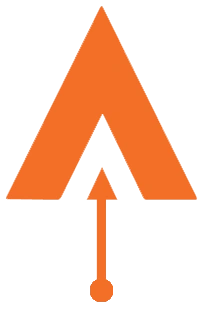In the fast-paced world of IT services, Managed Service Providers (MSPs) who master marketing automation gain a significant competitive edge. As the digital landscape evolves, MSPs face unique challenges in attracting and retaining clients. Marketing automation offers a powerful solution, enabling MSPs to streamline their marketing efforts, nurture leads more effectively, and deliver personalized experiences at scale.
Understanding Marketing Automation for MSPs
Marketing automation refers to the use of software and technology to automate repetitive marketing tasks and workflows. For MSPs, this can include everything from email campaigns and social media posting to lead scoring and customer segmentation.
Key Components of Marketing Automation
- Email Marketing
- Lead Generation and Nurturing
- Customer Relationship Management (CRM) Integration
- Analytics and Reporting
- Social Media Management
MSPs face unique marketing challenges, including complex sales cycles, highly technical offerings, and the need to establish trust in a competitive market. Marketing automation addresses these challenges by:
- Streamlining lead generation and qualification processes
- Providing consistent, targeted communication throughout the buyer’s journey
- Offering data-driven insights to improve marketing strategies
- Freeing up time for MSP teams to focus on core IT services
Choosing the Right Marketing Automation Platform
Selecting the appropriate marketing automation tool is crucial for MSPs. Key features to look for include:
- Robust CRM Integration: Seamless connection with your existing customer data
- Advanced Segmentation: Ability to target specific audience segments based on behavior and demographics
- Multi-Channel Capabilities: Integration with email, social media, and other marketing channels
- Customizable Workflows: Flexibility to create automation sequences tailored to your MSP's needs
- Comprehensive Analytics: Detailed reporting on campaign performance and ROI
Popular platforms for MSPs include HubSpot, Marketo, and HighLevel. When comparing options, consider factors such as:
- Ease of use and learning curve
- Scalability as your MSP grows
- Integration capabilities with your existing tech stack
- Cost-effectiveness and ROI potential

Pro Tip: Many marketing automation platforms offer free trials. Take advantage of these to test the features and compatibility with your MSP's workflow before committing.
Essential Marketing Automation Strategies for MSPs
-
Lead Generation and Capture
Implement these strategies to attract and capture potential clients:
- Website Forms and Landing Pages: Create targeted landing pages with optimized forms to capture lead information. Use dynamic content to personalize the experience based on visitor behavior.
- Chatbots and Conversational Marketing: Implement AI-powered chatbots on your website to engage visitors 24/7, answer common questions, and qualify leads in real-time.
Learn More: Generating Leads for Your IT Company: A Guide to Success
-
Lead Nurturing and Scoring
Once you’ve captured leads, nurture them through the sales funnel:
- Automated Email Drip Campaigns: Set up a series of targeted emails that provide valuable content based on the lead’s interests and stage in the buyer’s journey.
- Behavior-Based Lead Scoring: Assign points to leads based on their interactions with your content and website. This helps prioritize sales efforts on the most promising prospects.
-
Customer Onboarding and Retention
Use automation to enhance the customer experience:
- Automated Welcome Sequences: Create a series of onboarding emails to guide new clients through your services and set expectations.
- Personalized Check-ins and Surveys: Set up automated touchpoints to gather feedback and address concerns proactively.
Leveraging Data and Analytics in Marketing Automation
Data-driven decision-making is crucial for MSPs to optimize their marketing efforts. Key metrics to track include:
- Email open and click-through rates
- Landing page conversion rates
- Lead qualification and scoring accuracy
- Customer acquisition cost (CAC)
- Customer lifetime value (CLV)
Use your marketing automation platform’s reporting features to generate regular insights on these metrics. This data can help you:
- Refine your targeting and segmentation strategies
- Optimize your content and messaging
- Identify bottlenecks in your sales funnel
- Demonstrate ROI to stakeholders
Personalization and Segmentation Techniques
Effective personalization can significantly improve your marketing results. Consider these strategies:
- Create Buyer Personas: Develop detailed profiles of your ideal clients, including their pain points, decision-making processes, and preferred communication channels.
- Segment Your Contacts: Group your leads and clients based on factors like:
- Company size
- Industry vertical
- Technology needs
- Engagement level
- Deliver Tailored Content: Use automation to send personalized content based on each segment’s interests and needs. This could include:
- Industry-specific case studies
- Targeted product recommendations
- Customized service bundles
Learn More: Strategies to Improve MSP Digital Marketing Lead Quality
Compliance and Best Practices in Automated Marketing
As an MSP handling sensitive client data, it’s crucial to maintain compliance and ethical standards in your marketing automation efforts:
- Adhere to Data Protection Regulations: Ensure your practices comply with GDPR, CCPA, and other relevant data privacy laws.
- Maintain Brand Consistency: Use templates and brand guidelines to ensure all automated communications reflect your MSP's voice and values.
- Balance Automation with Human Touch: While automation is powerful, remember to incorporate personal touchpoints, especially for high-value leads and clients.
Overcoming Common Challenges in Marketing Automation for MSPs
- Addressing Resource Constraints: Start small and scale gradually. Focus on automating one process at a time to avoid overwhelming your team.
- Ensuring Data Quality: Regularly clean and update your database. Implement data validation rules to maintain accuracy.
- Managing the Learning Curve: Invest in training for your team. Many automation platforms offer free resources and certifications to help users master their tools.
Conclusion
Marketing automation offers MSPs a powerful way to enhance operational efficiency, improve customer engagement, and drive overall growth. By implementing these best practices and staying attuned to emerging trends, MSPs can transform their marketing from a cost center to a profitable growth engine.
At MSP Traction, we primarily work with HighLevel as our marketing automation platform of choice. After extensive research and hands-on experience with various tools, we’ve found that HighLevel provides the most value and functionality for small business owners, especially in the MSP space.
HighLevel stands out for several reasons:
- All-in-One Solution: HighLevel combines CRM, marketing automation, and client management in one platform, reducing the need for multiple tools and integrations.
- MSP-Friendly Features: The platform offers features specifically beneficial to MSPs, such as appointment scheduling, pipeline management, and service ticketing.
- Customization: HighLevel provides extensive customization options, allowing MSPs to tailor the platform to their specific workflows and client needs.
- Cost-Effective: Compared to enterprise solutions, HighLevel offers robust features at a price point that's accessible for small to medium-sized MSPs.
- Scalability: As your MSP grows, HighLevel can scale with you, offering advanced features and agency tools when you're ready to expand.
Embrace marketing automation to transform your MSP’s growth trajectory and deliver unparalleled value to your clients. The future of MSP marketing is automated, personalized, and data-driven. With the right tools and strategies, you’re well-equipped to lead the way in this competitive landscape. Contact us today!





